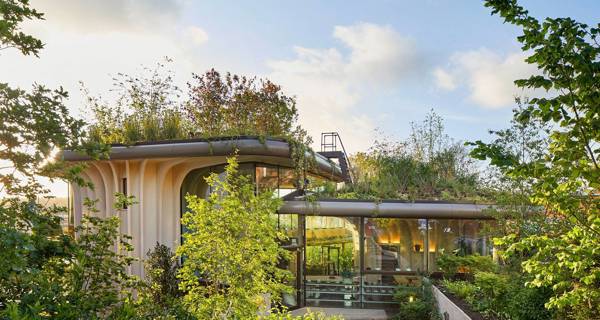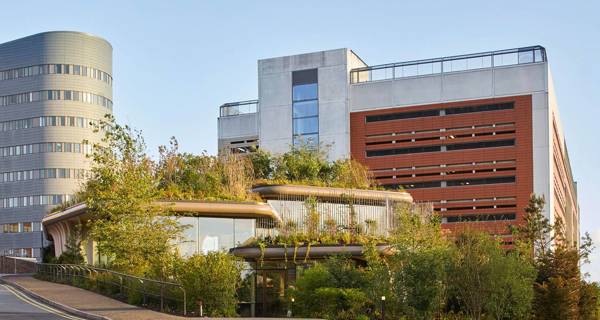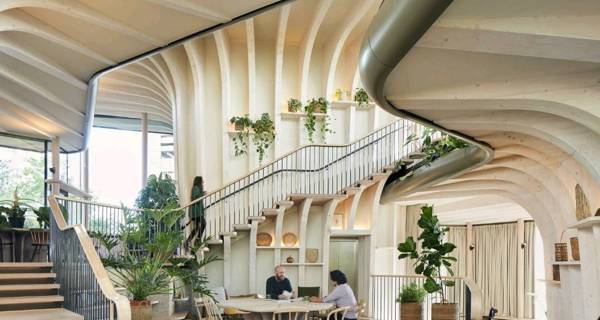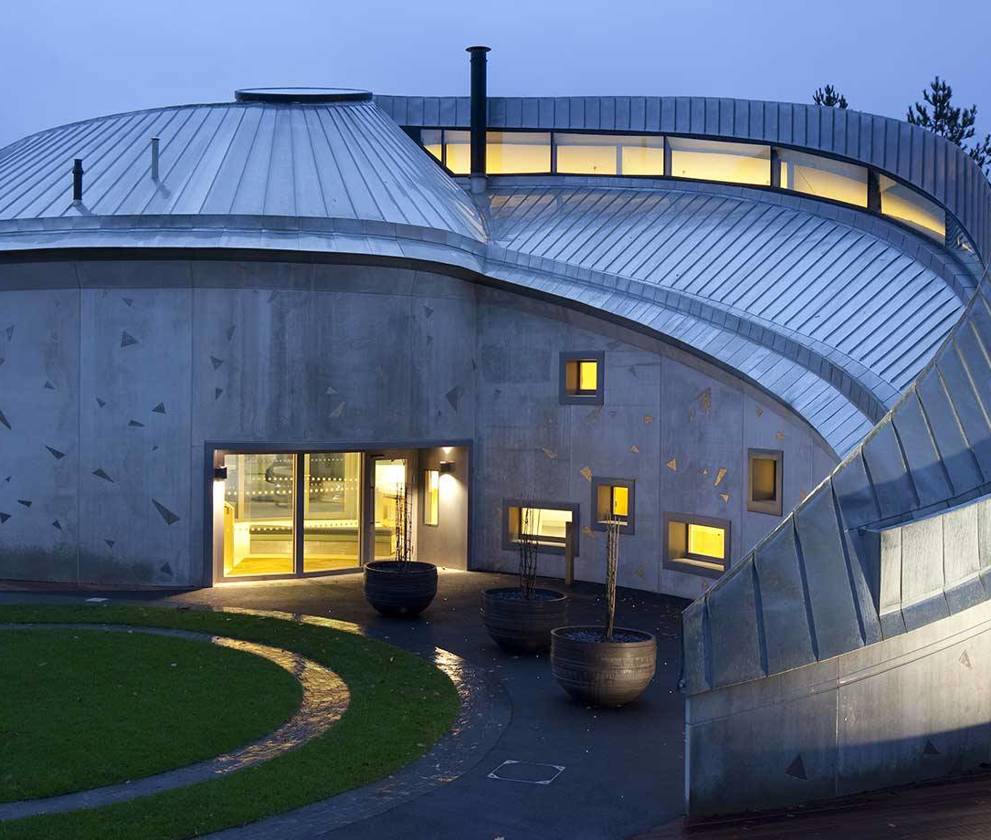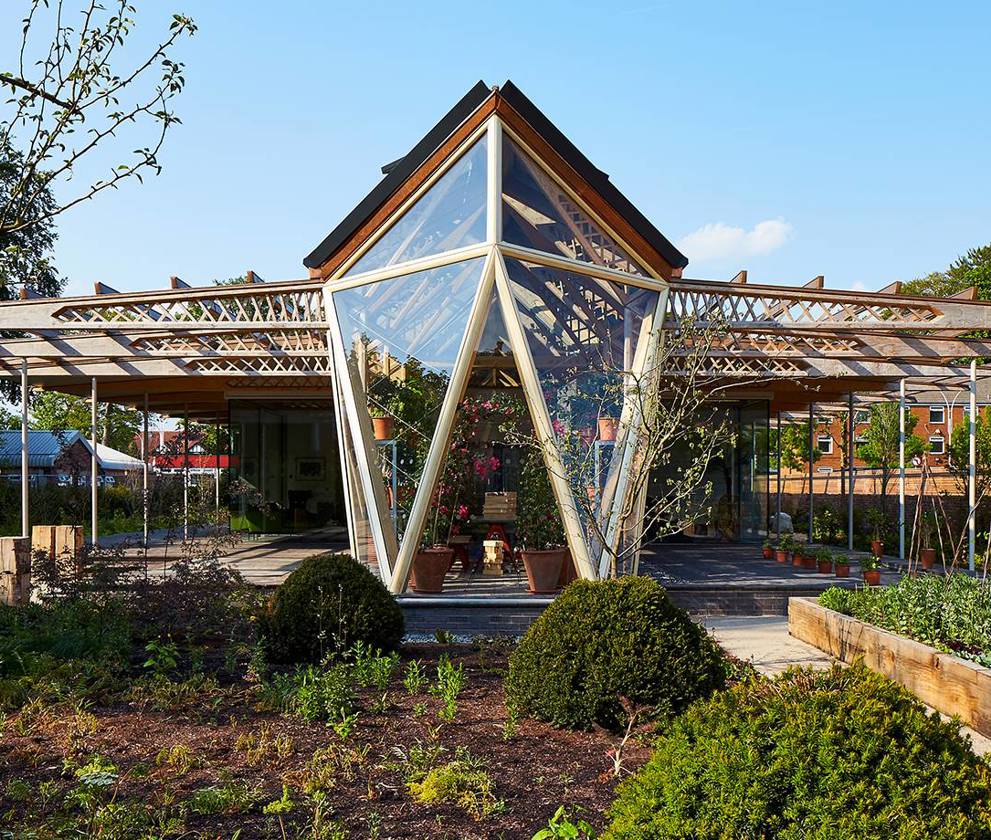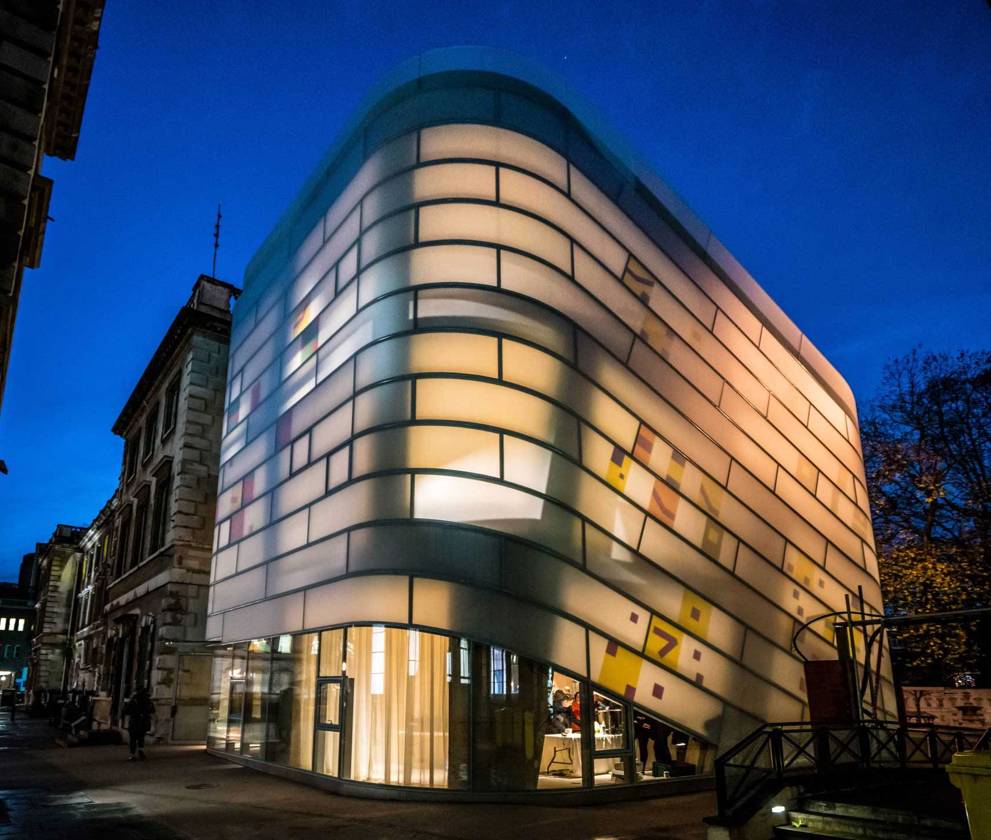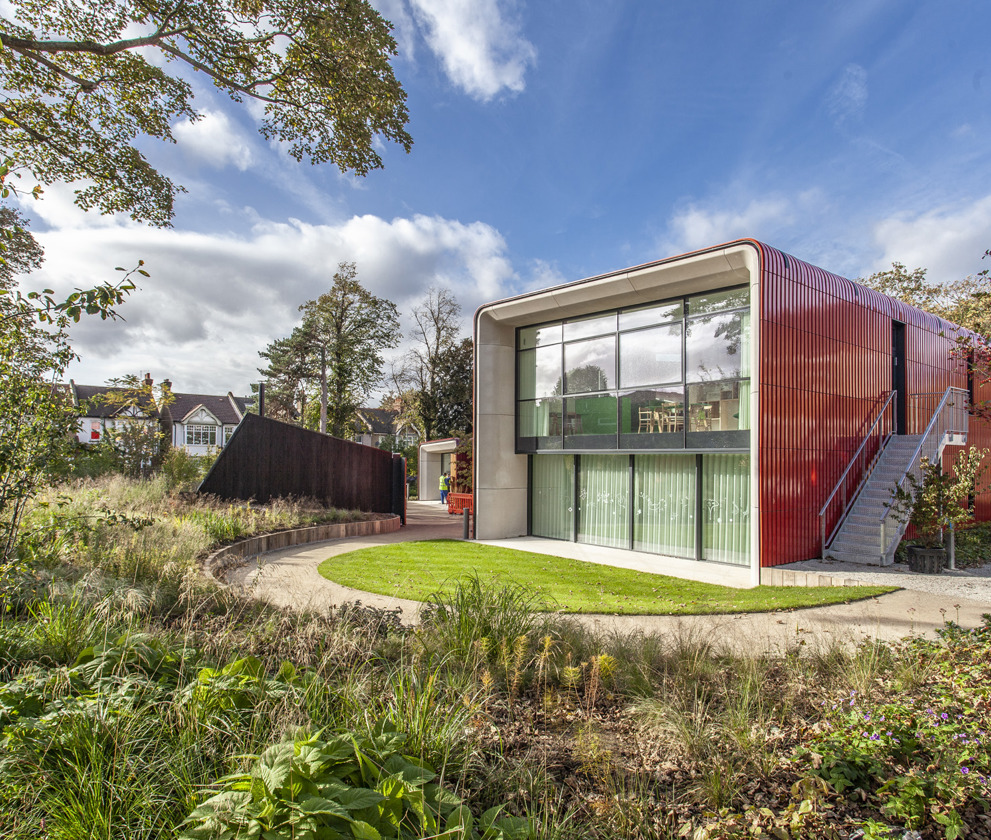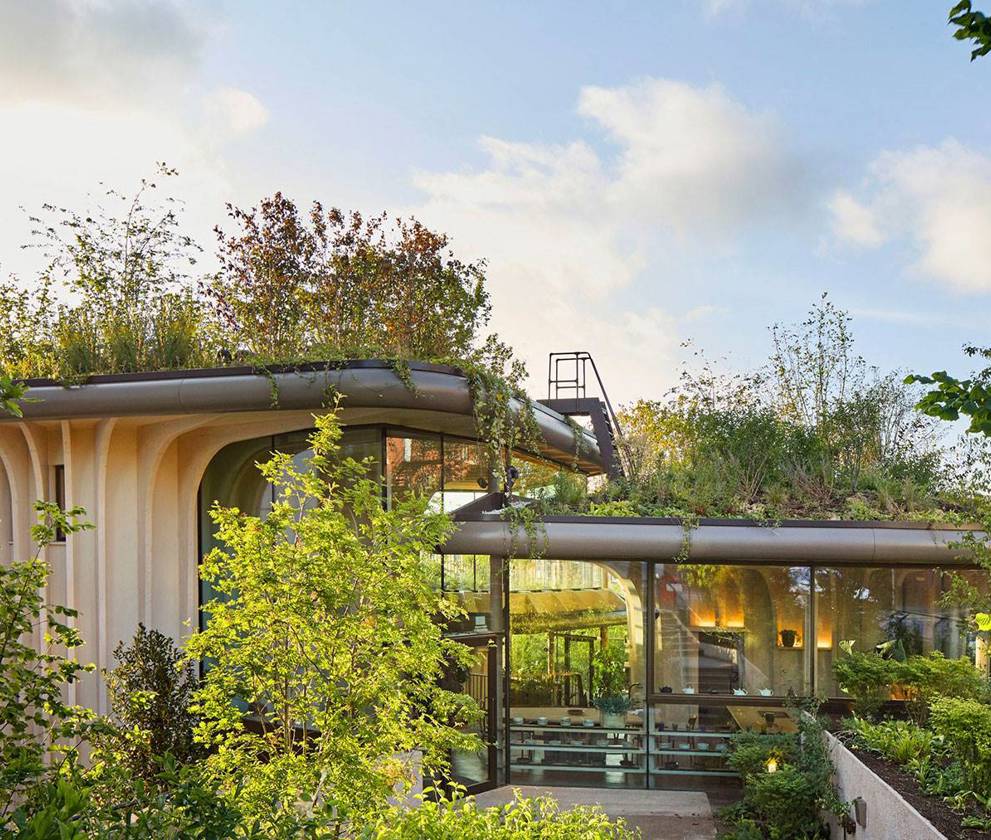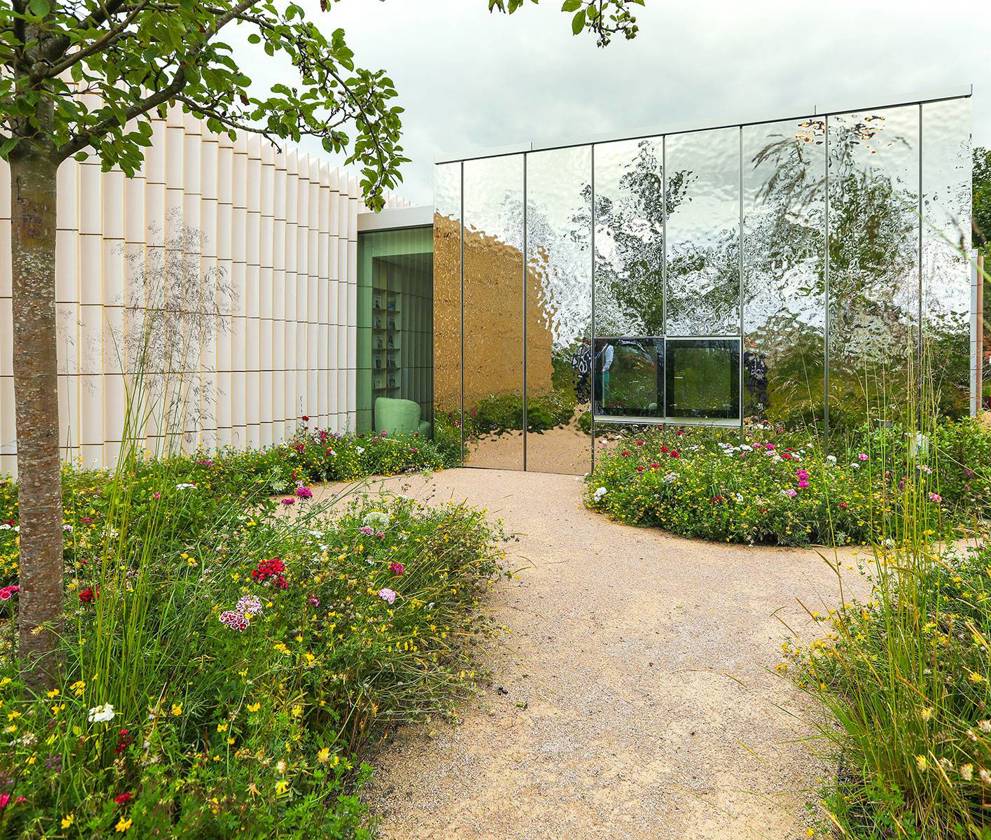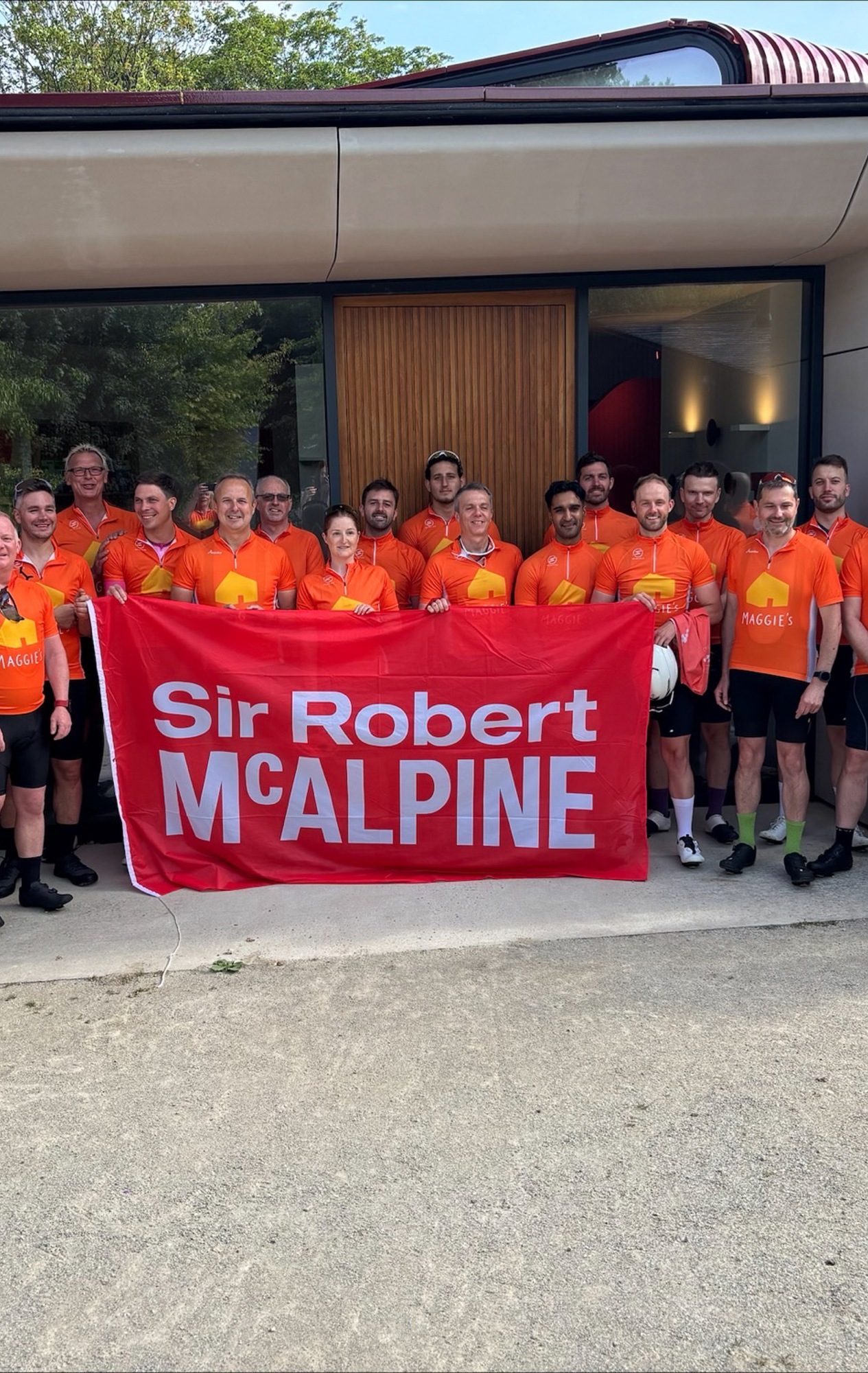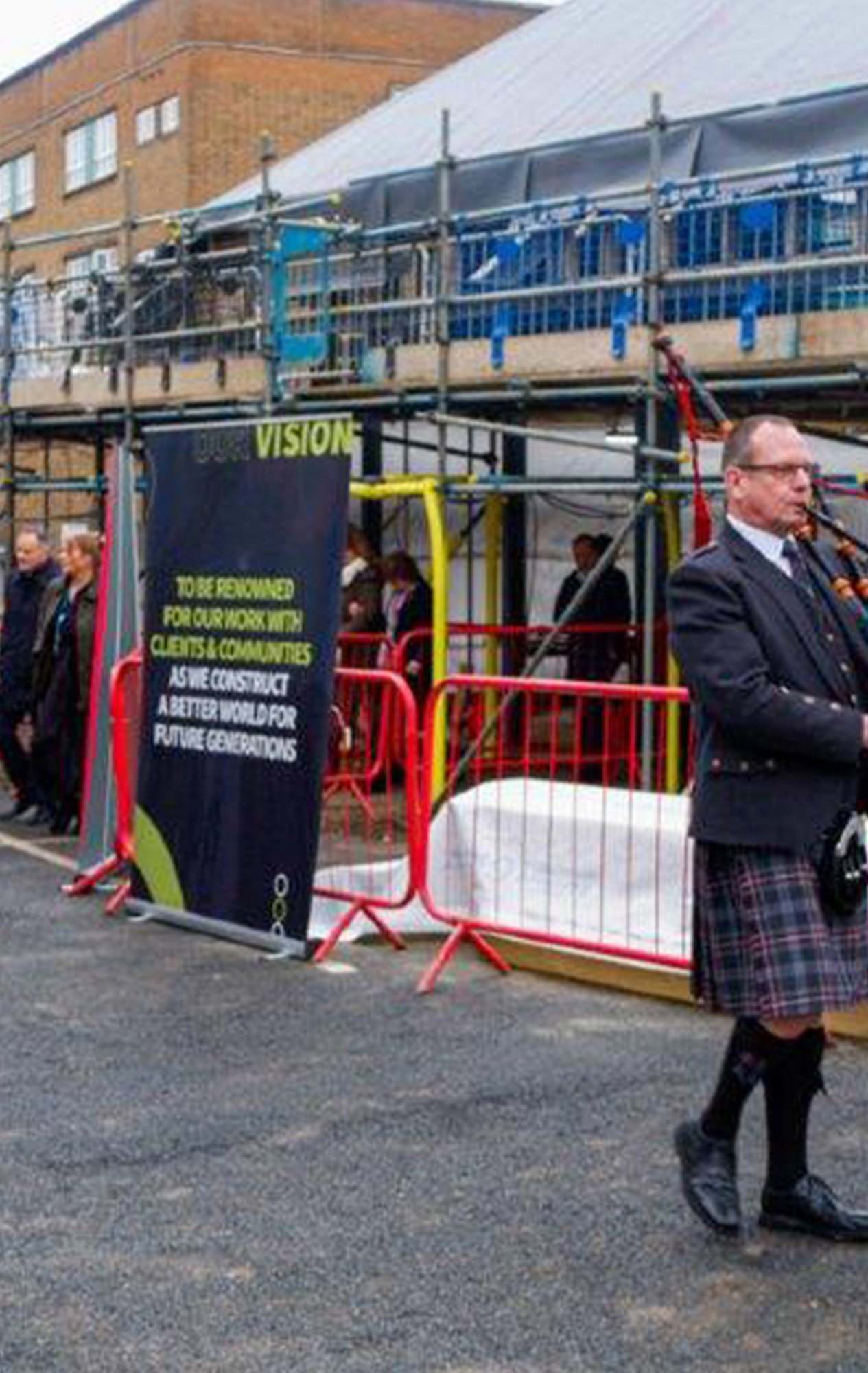- Client: Maggie Keswick Jencks Cancer Caring Centres Trust
- Sector: Healthcare
- Value: £4.5m
- Region: Yorkshire & Humber
- Completion Date: 2019
A truly extraordinary building for Maggie's Yorkshire
Built amongst a cluster of medical buildings at St James’ University Hospital in Leeds, Maggie’s Yorkshire is a cancer care centre like no other with its trio of interconnected levels and landscaped roofs.
Designed by Heatherwick Studio and built by Sir Robert McAlpine, Maggie’s Yorkshire is a truly extraordinary building, as complex in its construction as it is ingenious in its conceit.
Set in what was the only green space left amongst a cluster of medical buildings at St James’ University Hospital, the centre is expressed as a grouping of three stepped planters, which act to raise up the gardens while providing a series of shared and private spaces below. The building’s interior is no less striking, rows of giant splayed glulam fins rising around you and seamlessly branching out overhead into an elegant and fluid canopy of a roof.
Project summary
Design challenge
Precise in every detail, for a structure of some 460m², this building presented more challenges per square inch than most. From the curving millimetre-perfect internal lime render to the exposed aggregate concrete, the timber and micro cement flooring, and the heavily planted rooftop gardens, delivering the architect’s vision and the quality demanded was no mean feat.
The architect was passionate about delivering their design intent right down to the finest detail. The challenge was to successfully achieve that without compromising the integrity of the building in terms of safety, structure, compliance and cost.
As well as managing the complex sequencing and interfaces between trades, the project team went above and beyond coordinating the various supply chain partners involved in delivering the design.
Quality driven
Whether it was the challenge of achieving the seamless interfaces between the walls and the soffits, or the complex roof build-up required for the gardens, the project required a special level of engagement with our contractors.
The team took the time to get the right people on board, inviting them to visit site to understand what needed to be achieved, and then working closely with them to navigate the various constraints and deliver to the right standard. On occasion it took three months talking something through and then a couple of days installing it. The product had to be the absolute focus as well as getting people to buy into the quality. The complexity of a building like this also brought with it learning opportunities for those involved. There were instances where our contractors were doing things that they wouldn’t normally do in terms of the intricacy and detail.
Manufacturing challenge
The building’s curved bullnoses, which help define its various levels, also proved extremely challenging. While the straight sections were sourced relatively easily, the corner sections, which curve both in section and on the horizontal plane, were more complex to manufacture. The team eventually sourced an artisan manufacturer who applied traditional techniques to bend and stretch the steel as required.
Glass and a half
Given the complex geometry of the building, ensuring all joints and corners were perfectly aligned when positioning the centre’s large, bespoke glazed panels was hugely challenging. Especially when this involved lifting some of the 0.75 tonne panels over the building and manoeuvring them into position on a slant and with only millimetres of clearance either side.
Complex in the ground
With the centre built on a steeply sloping site falling in two directions and bounded by roads and a multi-storey car park, formation of the reinforced concrete substructure was one of the first complexities faced by the team.
The operation required meticulous planning and extensive collaboration. Every stage of the process had to be carefully considered as the team retained the road running along the top of the site while a three metre by three metre permanent retaining wall was constructed. The raft slab is stepped to facilitate the change in ground level across the site.
Find out more about our partnership with Maggie's
Our corporate partnership
It’s more than a decade since we started working with Maggie’s, as well as constructing many of its centres, we've raised more than £1,000,000 for the charity.
Maggies cancer care centresEngineering Excellence for Maggie’s first Cancer Care Centre in Wales
Our expertise overcame a challenging design to deliver this unique healthcare project at Singleton Hospital, Swansea.
Cancer care centre Maggie’s, SwanseaInnovation key to delivering Maggie’s at The Christie
Our construction knowledge and know-how was key in helping realise the complex architectural vision for Maggie’s at The Christie in Manchester.
Maggies Cancer Care Centre, ManchesterHeritage and complex projects expertise delivers Maggie’s Barts
Our Special Projects delivered this technically complex healthcare project within live hospital campus and protected it’s Grade I listed neighbours.
Cancer care centre Maggie’s, BartsEnabling Maggie’s to support cancer care at The Royal Marsden
Careful planning and meticulous collaboration allowed us to complete this design-led scheme on a busy working hospital site.
Maggie’s Royal MarsdenA truly extraordinary building for Maggie's Yorkshire
Built amongst a cluster of medical buildings at St James’ University Hospital in Leeds, Maggie’s Yorkshire is a cancer care centre like no other.
Maggie's Cancer Care Centre, YorkshireDelivering award winning Maggie's Southampton
Our Special Projects team delivered this verdant ‘New Forest’ inspired Maggie’s Cancer Care Centres at Southampton’s General Hospital.
Maggie’s Cancer Care Centre, SouthamptonMaggie's in the news
-
![]() Read more about
Read more aboutGrand depart for intrepid Maggie's cyclists
12 Jun 2025Our team of cyclists are making their way from Maggie's Royal Marsden in London to the charity's centre in Groningen, aiming to raise £25,000
-
![]() Read more about
Read more aboutAlex and Tom conquer West Highland Way for Maggie’s
01 May 2025Two of our colleagues completed the 96-mile West Highland Way walk in aid of Maggie's
-
![]() Read more about
Read more aboutMaggie's Northampton topping out
24 Feb 2025Sir Robert McAlpine Special Projects celebrates the topping out of Maggie’s Northampton, a new cancer support centre at Northampton General Hospital, marking a key milestone in providing expert care for those affected by cancer.
